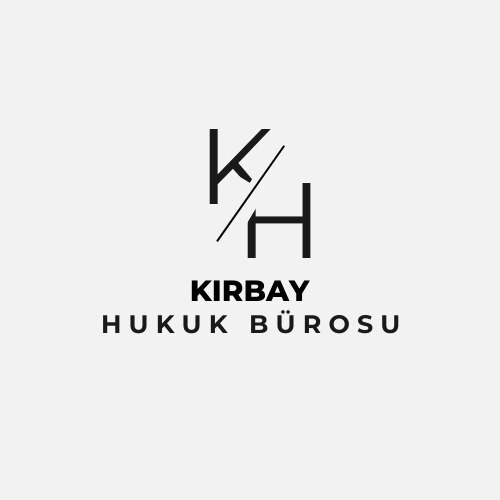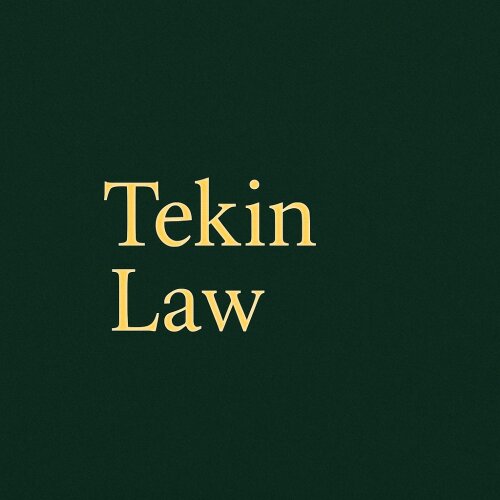Best Corporate & Commercial Lawyers in Istanbul
Share your needs with us, get contacted by law firms.
Free. Takes 2 min.
List of the best lawyers in Istanbul, Turkey
Legal guides written by Tekin Law Firm:
- Arbitration in Turkey
Turkey Corporate & Commercial Legal Articles
Browse our 1 legal article about Corporate & Commercial in Turkey written by expert lawyers.
- Turkey KVKK Compliance: A Guide for Global Businesses
- Mandatory Registration: Foreign data controllers targeting the Turkish market or monitoring Turkish residents must register with the VERBIS system before processing data. 2024 Reform: Recent amendments to the KVKK have aligned Turkish cross-border data transfer rules more closely with the EU's GDPR, introducing Standard Contractual Clauses (SCCs). Criminal Liability: Unlike... Read more →
About Corporate & Commercial Law in Istanbul, Turkey
Corporate and commercial law in Istanbul, Turkey, offers the legal framework that governs how businesses are formed, managed, and dissolved. As Turkey's economic hub, Istanbul attracts foreign and local investors, entrepreneurs, and corporations. The city is home to numerous local and international businesses, making it a vibrant center for commercial activity. Turkish corporate and commercial law covers company formation, mergers and acquisitions, joint ventures, commercial contracts, dispute resolution, compliance, and more. Whether you are starting a business or managing a complex transaction, understanding the local legal landscape is crucial for success in Istanbul's dynamic market.
Why You May Need a Lawyer
Legal assistance is often essential when dealing with corporate and commercial matters in Istanbul. Situations in which you may need a lawyer include:
- Establishing a new company or branch office in Turkey
- Reviewing, drafting, or negotiating commercial contracts
- Mergers, acquisitions, or joint ventures with Turkish entities
- Resolving disputes between shareholders or with business partners
- Ensuring compliance with Turkish laws and regulations
- Handling employment issues or labor law compliance
- Protecting intellectual property rights
- Dealing with bankruptcy, restructuring, or liquidation
- Managing regulatory approvals and licenses
- Buying or leasing commercial property
Legal guidance helps avoid risks, ensures compliance, and protects your business interests throughout every stage of commercial activity in Istanbul.
Local Laws Overview
Turkish corporate and commercial law is rooted in several key laws and regulations. The main legal sources include the Turkish Commercial Code, the Code of Obligations, and sector-specific regulations. Notably, the Turkish Commercial Code governs company types such as Limited Liability Companies (Ltd. Şti.) and Joint Stock Companies (A.Ş.). It sets out rules on incorporation, corporate governance, capital requirements, and shareholder rights.
Contract law in Turkey allows for significant freedom of contract, but enforceability depends on adherence to Turkish public order and mandatory provisions. Foreign investment is welcomed, though certain sectors have restricted access or require additional approvals. The process for mergers, acquisitions, and dissolutions is regulated to ensure transparency and the protection of stakeholders. Labour laws also impact corporate operations, particularly regarding employee rights and obligations. Additionally, companies must comply with tax, data protection, and competition laws.
Istanbul's position as Turkey's financial and business center means that local authorities, chambers of commerce, and courts are well-versed in handling a wide variety of corporate and commercial matters.
Frequently Asked Questions
What types of companies can be established in Istanbul?
The most common company types are Limited Liability Companies (Ltd. Şti.) and Joint Stock Companies (A.Ş.). There are also general partnerships, commandite companies, and branch offices for foreign entities.
How long does it take to incorporate a company in Istanbul?
Company registration can usually be completed within one to two weeks, provided all necessary documents are in order and procedures are followed promptly.
Do I need a local partner or shareholder to start a business in Turkey?
No, foreign investors can own 100 percent of a Turkish company. However, certain regulated industries may have restrictions or special requirements.
What are the basic requirements for company incorporation?
You need a registered office address, articles of association, minimum capital (depending on company type), founding shareholders, and director information. Some types require a notary and trade registry approval.
Are there residency requirements for directors or shareholders?
No, neither directors nor shareholders are generally required to be Turkish residents. However, at least one director must have the power to represent the company in Turkey.
What disputes are commonly handled in commercial courts?
Commercial courts handle contract disputes, shareholder disagreements, intellectual property rights, debt collection, and bankruptcy cases, among others.
Are commercial contracts legally binding in Turkey?
Yes, as long as contracts comply with Turkish law and public order. Some contracts must be in writing or notarized to be valid and enforceable.
How is foreign investment regulated?
Foreign investors are generally treated equally to local investors. Registration and notification requirements apply, and some sectors have restrictions or licensing obligations.
What are the main compliance obligations for companies?
Companies must comply with tax registration, annual reporting, accounting standards, employment laws, and data protection requirements. Board and shareholder meetings must be held and documented regularly.
How can a business be dissolved or liquidated?
The process involves a shareholder resolution, appointment of liquidators, settlement of debts and liabilities, and distribution of remaining assets. The process is supervised by the trade registry and can take several months.
Additional Resources
For further assistance and up-to-date information about corporate and commercial law in Istanbul, consider contacting or consulting:
- The Istanbul Chamber of Commerce
- Ministry of Trade of the Republic of Turkey
- Turkish Bar Association
- Union of Chambers and Commodity Exchanges of Turkey (TOBB)
- Presidency of the Investment Office of Turkey
- Local commercial law firms and professional advisors
Many official organizations offer guidance, forms, and information in English and Turkish.
Next Steps
If you require legal assistance for corporate and commercial matters in Istanbul, begin by identifying the specific services you need, such as company formation, contract drafting, compliance, or dispute resolution. Prepare relevant documents and background information about your business or matter. Consult with a qualified corporate lawyer or law firm experienced in Turkish commercial law to discuss your situation and options. Most reputable law firms offer an initial consultation to assess your needs and outline their services. Acting in a timely manner can help you avoid unnecessary risk and ensure your business interests are properly protected under Turkish law.
Lawzana helps you find the best lawyers and law firms in Istanbul through a curated and pre-screened list of qualified legal professionals. Our platform offers rankings and detailed profiles of attorneys and law firms, allowing you to compare based on practice areas, including Corporate & Commercial, experience, and client feedback.
Each profile includes a description of the firm's areas of practice, client reviews, team members and partners, year of establishment, spoken languages, office locations, contact information, social media presence, and any published articles or resources. Most firms on our platform speak English and are experienced in both local and international legal matters.
Get a quote from top-rated law firms in Istanbul, Turkey — quickly, securely, and without unnecessary hassle.
Disclaimer:
The information provided on this page is for general informational purposes only and does not constitute legal advice. While we strive to ensure the accuracy and relevance of the content, legal information may change over time, and interpretations of the law can vary. You should always consult with a qualified legal professional for advice specific to your situation.
We disclaim all liability for actions taken or not taken based on the content of this page. If you believe any information is incorrect or outdated, please contact us, and we will review and update it where appropriate.
Browse corporate & commercial law firms by service in Istanbul, Turkey
Istanbul, Turkey Attorneys in related practice areas.

















